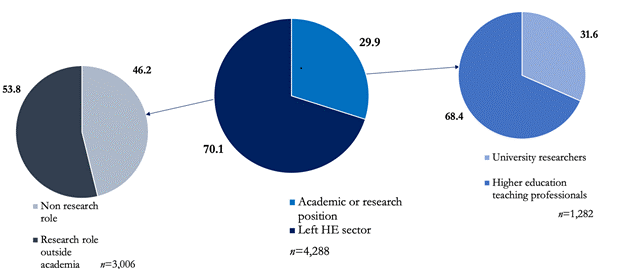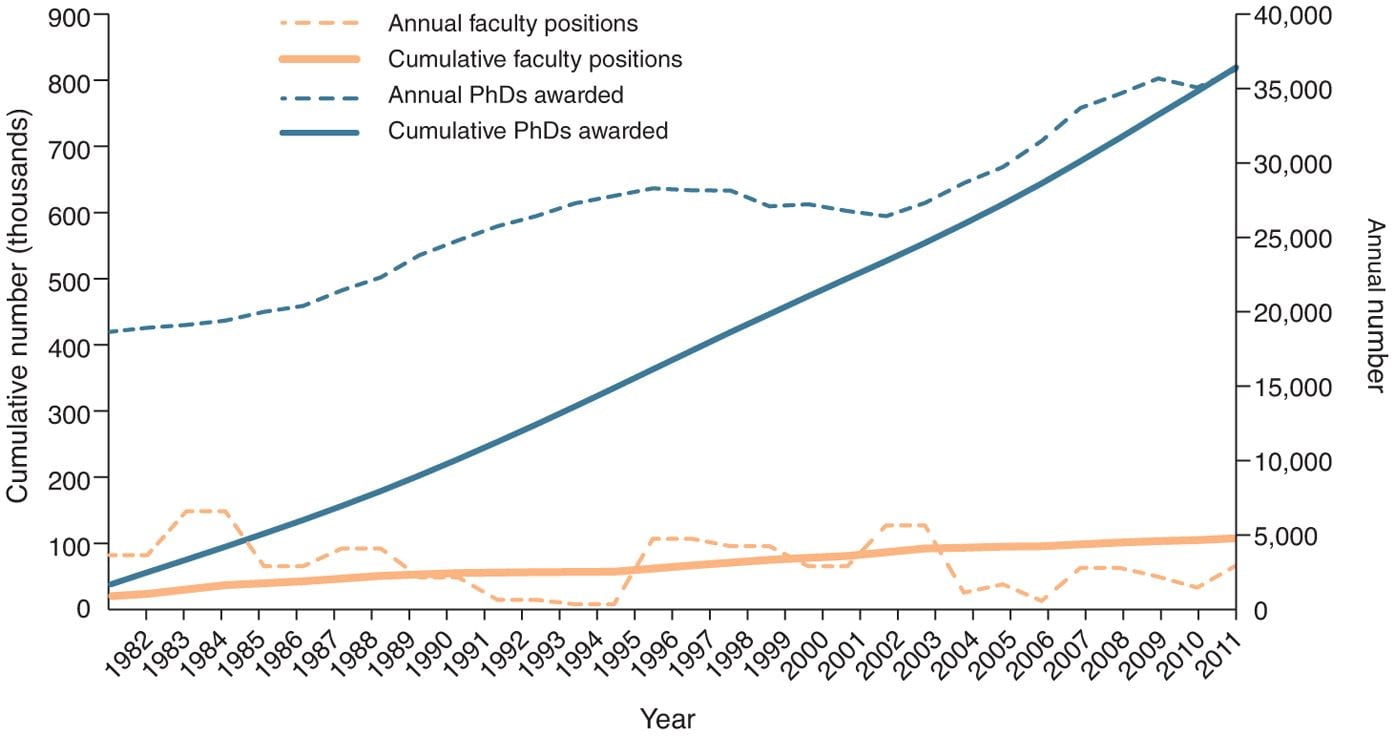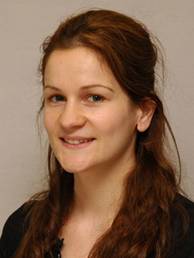How experimenting like a scientist helps you make a successful career transition
By s.duran, on 11 May 2021
Bernardo Milani Alvares
Bernardo is a Strategy Manager at Abcam
A career transition often takes place in a context of ambiguity and conflicting emotions. Despite the setbacks of academia, most researchers are passionate about their subjects and have high-achieving personalities. Switching careers may feel like giving up an important part of our identities.
Exploring alternative careers means questioning our goals, which can be daunting, especially as we live in an outcomes-obsessed society, where we are measured by our results (e.g., money, number of likes on social media, etc). Such pressures are magnified by three factors:
- Goals for researchers are usually very strong, as they are often built against societal expectations. Maybe our parents wanted us to have a well-paid job; as doing research defeat their expectations, we created strong goals for ourselves; swimming against the tide made these goals more engrained;
- We feel invested in an academic career. In Business this is called the “sunk cost fallacy”: when we cannot make a difficult decision to cut losses (e.g., shut down an unprofitable factory) when we have already committed significant resources to build it;
- Our perfectionistic tendencies as researchers. We may judge ourselves for questioning goals that were solid in the past. We feel less in control.
The unsettling feelings generated by this “identity crisis” may propel us to set new goals quickly. However, these goals tend to look backwards, as they are based on old identities. It is vital to pause and avoid the temptation to make drastic decisions.
That’s when experimenting comes in. As you try new things and learn more about yourself and the world, and you can make more meaningful decisions, and set goals that are aligned with your new identity. To illustrate these points, I want to introduce you to the three main stages of the career journey:
- Execution: the activities happening in our current roles, such as learning, delivering results and promotion. That’s probably you right now (e.g., doing a Ph.D.);
- Explore: we immerse yourself in new activities and environments to explore other interests, meet new people and learn skills: the focus is on exploration, identity-shaping, growth and self-awareness;
- Goal setting: we define your short, medium and long-term goals; building a roadmap with the activities and roles to reach our goals.
As you prepare for a career transition, you need to explore new interests during the execution phase. I developed an interest in Business when doing an undergraduate placement at the pharma company GlaxoSmithKline. I enjoyed the fast-paced nature of the work and how the company responded to changes in the market. This curiosity drove to explore opportunities to learn about Business during my PhD at UCL.
Extracurricular activities are a great way to build the flexible, service-oriented, and collaborative mindset required in Business, where you must serve the needs of others (e.g., customers, managers, shareholders) and have less control of your schedule compared with academia.
Although there is no “magic formula” for picking extracurricular activities, the more you can experience a collaborative, fast-moving and externally facing environment, the better. This means activities in which you:
- Are not the expert;
- Feel passionate about the project;
- Do something bigger than you;
- Work as part of a team to solve real problems impacting real people;
- Work with people different from yourself and/or challenging audiences;
- Mobilise resources, influence and inspire other people;
Finding interesting extracurricular activities can come with a touch of serendipity. After attending a start-up lecture at UCL, I met a group of students who had started the UCL branch of Enactus, a global student society focussed on social entrepreneurship, where students in the world’s universities form teams apply Business skills to develop projects that bring benefit to society.
I set up an employability project leading a team of 9 university students helping young people living in more deprived areas of London write CVs, prepare for interviews and develop transferable skills, in partnership with the university’s Careers Services. Our audience was initially reluctant to engage in the activities, so we gained their trust by demonstrating a genuine interest in who they were as individuals and their concerns around career decisions and getting their voices heard in society.
Not only did the project cover important transferable skills, it also helped us gain the confidence and emotional and cognitive flexibility to navigate unfamiliar territory. It also served as a good example of Entrepreneurship, of mobilising resources to tackle a real need creatively and realistically.
When it comes to extracurricular activities, I noticed many graduate students come to a decision paralysis. They think they must do several extracurricular activities and courses. The important thing is not the number but the quality. It is much better to have two solid experiences during which you demonstrated personal development on a deeper level rather than five shallower experiences.
Choose something you are passionate about, as you will be doing it whilst tired after a long day. I was passionate about improving lives through education, so spending evenings and weekends did not feel like a burden.
A good friend of mine with a Ph.D. in Neurosciences currently working in management consulting made an excellent point about the fact that extracurricular activities are not the only way to develop the professional behaviours required in Business:
“Professional behaviours are key. When you have a journal club, don’t wait until the last minute. Be on time for meetings. Come prepared for your presentations. Respect your peers and colleagues even if there is a culture of being late. Develop professionalism. Reply to emails in a timely manner and avoid typos. There are many small things you can do to develop a more professional way of being. It will make your life a lot easier; when you move to Business there will be clear expectations. The more you realise that expectations are different, the earlier you can start addressing them before moving into Business”
I have recently launched the ultimate guide for a successful career transition from academia into Business called “Break into Business without a Business degree”. The book has four main sections:
- Prepare for the transition: build the right skills and behaviours for a successful career transition;
- Become an outstanding Business problem-solver: develop a consistent method to solve Business problems with impact, with plenty of insider tips, real examples, and exercises;
- Showcase your skills: write a Business-ready CV and ace jobs interviews (including the infamous case interview);
- Thrive in a Business environment: develop behavioural and on-the job strategies to shine in your new role;
Although most academics (including myself at the time) worry about learning Business-related content, mindsets and behaviours are key. My intention was to make a more “human” book, with plenty of testimonials and real case examples, including successes and failures. I am very pleased to share the book with you, which you can find here.
I wish you all the best in your career transition and look forward to your feedback!
Bernardo is Strategy Manager for Abcam (a biotechnology company based in Cambridge, UK). Prior to Abcam, Bernardo worked as a management consultant at McKinsey & Company LatAm office for two years focussing on Healthcare and the public sector. Before consulting, Bernardo did a PhD in Immuno-oncology at University College London (UCL) and worked at GlaxoSmithKline (GSK) for one year (Industrial Placement) during his Biomedical Science BSc. Bernardo is passionate about supporting PhD students on their professional journeys, having given talks and workshops at leading universities in the UK and Latin America, and is currently writing an e-book on the topic.
 Close
Close




 Figure taken from Schillebeeckx et al’s 2014
Figure taken from Schillebeeckx et al’s 2014 
